Ronny Deila: Celtic manager 'at odds with himself'
- Published
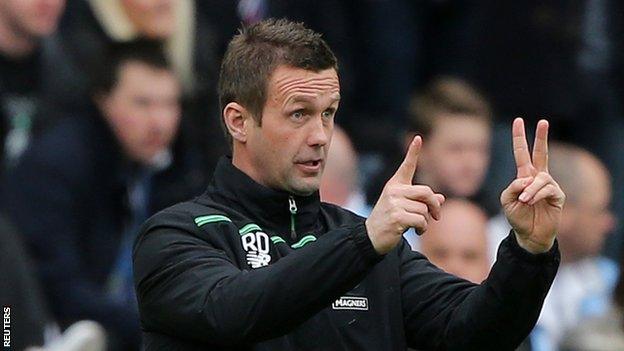
Ronny Deila's side lead the Scottish Premiership from Aberdeen
Ronny Deila is now left with only his reflections.
There are five league games remaining and although retaining the Premiership title cannot be taken for granted, Celtic's eight-point lead over Aberdeen ought to be enough to see them over the line.
The feeling within the club is that securing a fifth consecutive championship is the priority and that Deila should be afforded some respect, but the announcement the Norwegian is leaving in the summer is a reflection of the strength of feeling amongst the supporters.
The temptation, particularly after a painful loss to Rangers in the Scottish Cup on Sunday, is to crave sweeping changes.
Yet Celtic are well-run financially, stable, and focused on making the most out of their resources. Where the approach has fallen short in recent times is in its implementation.
Right profile, wrong fit
When Deila was appointed two years ago, his background was pored over. There was promise in the notion of a coach who focused on players' individual development and a manager whose Stromsgodset side upset the odds in winning the Norwegian title playing a high-tempo, high-pressing, modern brand of football.
For both Deila and Celtic, the question is why that work in Norway was not reflected in the Celtic teams he presided over. He might come to reflect that he was not assertive or authoritative enough to impose his ideas fully.
Celtic need strong manager - Hartson
An element of compromise is necessary in management, but too much becomes a weakness. Deila had a reputation for being focused on fitness and a high energy approach; his Celtic teams did not match that promise. Deila never seemed to fill the role with his own personality or strength of will, instead it seemed to constrict him.
Kris Commons was a case in point. It was clear the midfielder, for all his creative and influential gifts, did not fit into Deila's preferred style. A stronger manager would have dispensed with the player, and so enforced his authority. Instead, Commons was offered a new deal by the club.
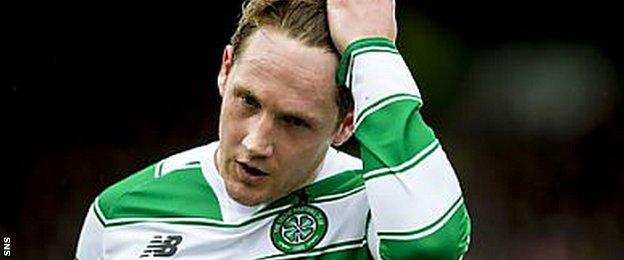
Kris Commons had to settle for a bit part under Deila
Scott Brown, too, was pictured in a newspaper slumped on the pavement during a night out, eating fast food, but Deila took the compromise stance and backed the player, who is club captain, long-serving and hugely influential.
One of those decisions might be considered shrewdly pragmatic, but too many becomes a diminishment of your standards. It is then a short journey to incidents like Commons shouting at the management team after being substituted, and Leigh Griffiths - a player who improved markedly under the Norwegian - hollering at Deila as he ran off at half-time during the semi-final defeat by Rangers at Hampden.
Having started to compromise his tactical approach, in part because the squad did not provide enough players with the right attributes to play that way, Deila should have learned to go further and become more pragmatic at times. Yet he remained committed to an attacking outlook, one that cost him regularly in Europe. He seemed a manager at odds with himself.
Champ League qual rounds 2014-15: | Champ League qual rounds 2015-16: |
Beat KR Reykjavik (Ice) 5-0 on agg | Beat Stjarnan (Ice) 6-1 on agg |
Lost to Legia Warsaw (Pol) 6-1 on agg (*awarded tie after Legia fielded ineligible player) | Beat Qarabag (Azer) 1-0 on agg |
Lost to Maribor (Slov) 2-1 on agg | Lost to Malmo (Swe) 4-3 on agg |
Finished 2nd in Europa League group to qualify (W 2 D 2 L 2) | Finished bottom of Europa League group (W 0 D 3 L 3) |
Lost to Inter Milan (Ita) 4-3 on agg in last 16 |
Recruitment woes
The theory behind Celtic's football strategy is sound. Sign players of potential, develop them alongside a core of tried and trusted performers, and sell them for a profit while the team continues to achieve its goals. It worked when the likes of Fraser Forster, Victor Wanyama and Virgil van Dijk were being sold for significant profits.
Yet Celtic have at times trawled the market, and signed too many players who did not develop sufficiently. Some, like Stefan Scepovic (£2.3m), Teemu Pukki (£3m), Derk Boerrigter (£3m) and Amido Balde (£1.5m) made little or no impact on the team. There will always be an element of risk to the approach, but during Deila's reign there seemed to be a lack of focus.
Signings ranged from players on loan from Manchester City like Jason Denayer, John Guidetti and Patrick Roberts, to players from rival clubs like Scott Allan, Stuart Armstrong, Gary Mackay-Steven, Nadir Ciftci and Ryan Christie, to wildcards like Carlton Cole and Colin Kazim-Richards. The result has been a diminishment of the team and an imbalanced squad that requires much work. Allan, for instance, is a player with fine potential, but he is wasted on the periphery.
Recruitment at Celtic has been a collaborative effort, between the manager, the football development manager John Park and the chief executive Peter Lawwell.
That approach can work, since the 'groupthink', external should challenge all decisions made and ensure that all recruitment choices are fully sourced and stress-tested, but the process has seemed to lose its way during Deila's tenure.
Where would Celtic go next?
Lennon would welcome Celtic return
The club does not have reserves of cash to radically alter its approach, unless the major shareholder Dermot Desmond is willing to underwrite a bolder strategy.
Otherwise, Celtic need to review and refine, but effectively implement their philosophy better, under a manager better able to command and inspire the dressing room and impose his ideas.
Davie Moyes is a leading candidate - albeit the same applies to other clubs with vacancies, such as Aston Villa - while the likes of Roy Keane and Michael O'Neill will come under consideration.
A return for Neil Lennon is highly unlikely, but the same attributes will be sought this summer as two years ago, since player development, a strong philosophy and a firm grasp of man-management will all be required.
Deila promised those skills, but was unable to fully deliver them. He should be better for the experience, and Celtic need to learn, too.
- Published20 April 2016
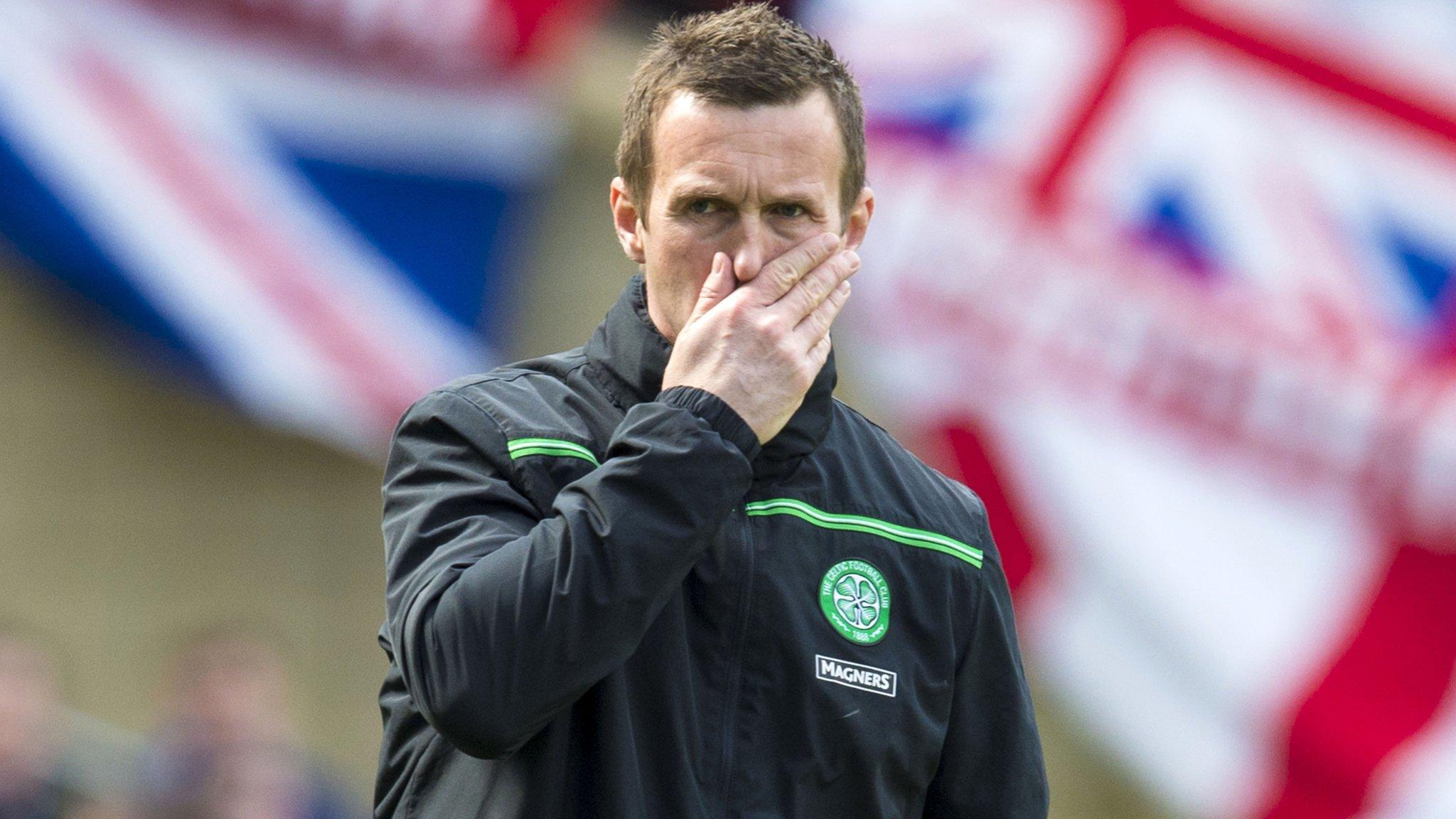
- Published20 April 2016
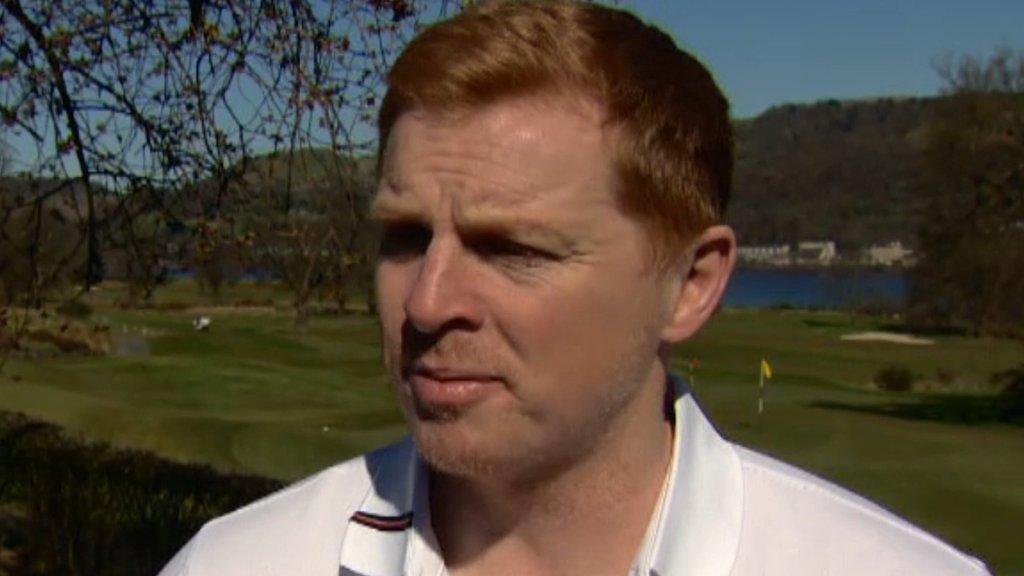
- Published20 April 2016
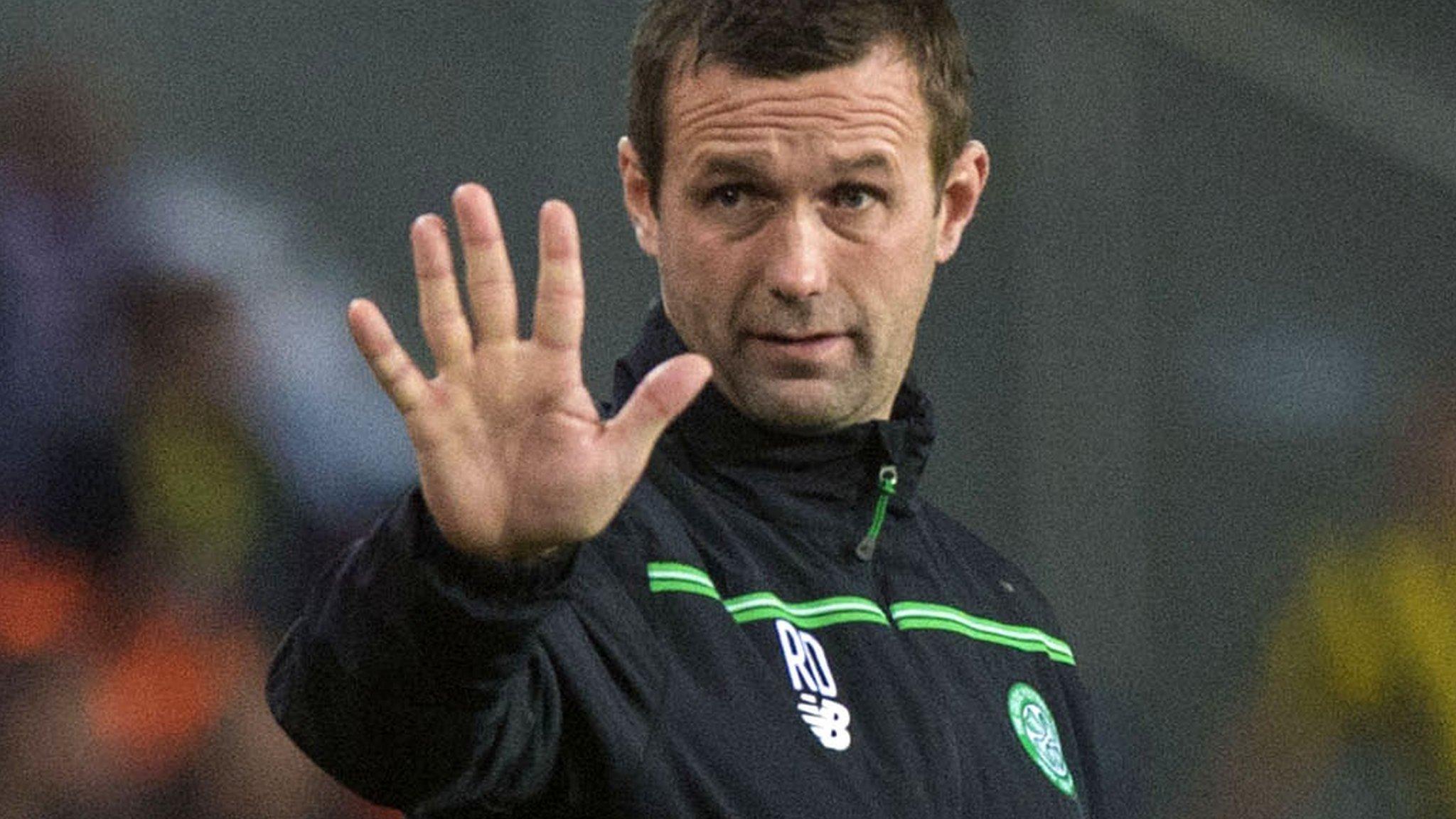
- Published19 April 2016
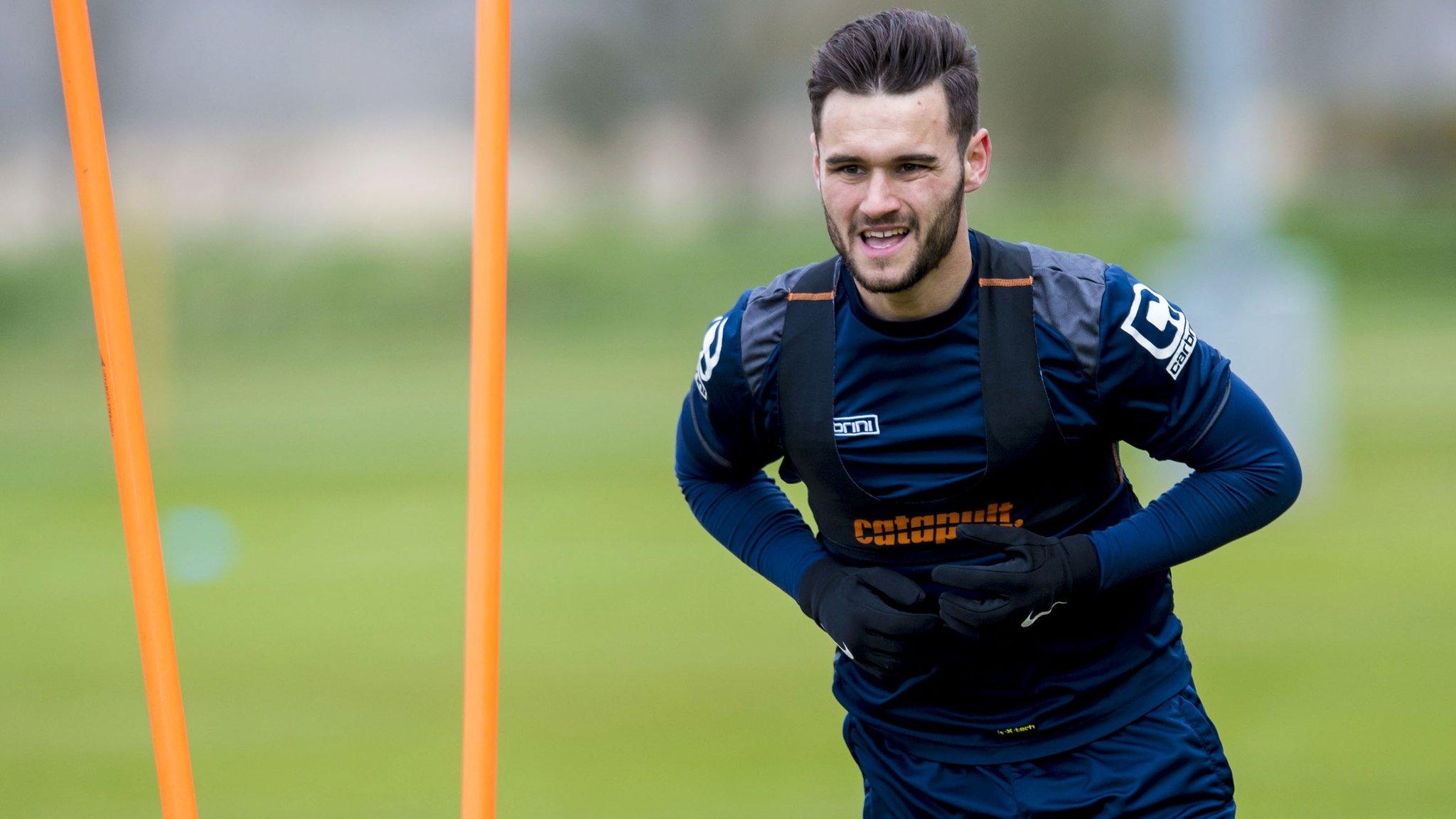
- Published20 June 2016

- Published7 June 2019
